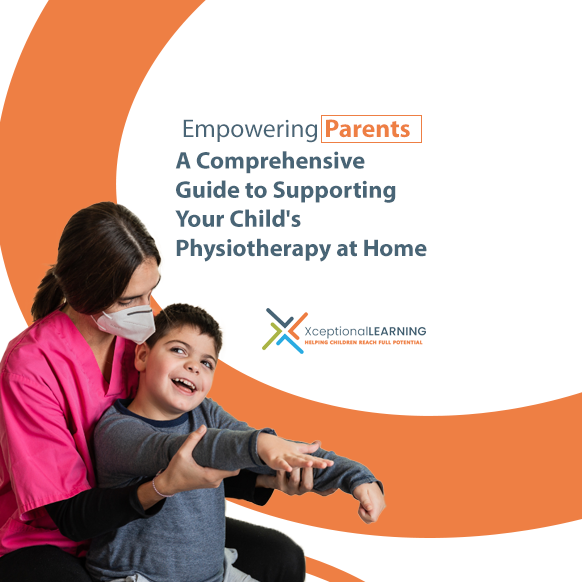Empowering Parents: A Comprehensive Guide to Supporting Your Child’s Physiotherapy at Home
admin June 21st, 2024
– Clinically Reviewed by
Bachelor of Physiotherapy (BPT)
Consultant Physiotherapist
In our modern, fast-paced society, parents hold a vital position in encouraging their child’s physical growth, particularly in the realm of physiotherapy. Whether your child is recuperating from an injury, coping with a chronic ailment, or seeking to enhance their mobility, the integration of physiotherapy exercises into their everyday regimen can yield remarkable benefits. With a focus on empowerment, this blog endeavors to arm parents with the knowledge and tools necessary to navigate their child’s physiotherapy journey effectively. From understanding the importance of consistent exercise to creating a conducive environment for practice, each aspect is carefully crafted to maximize parental involvement and optimize therapeutic outcomes.
Understanding the Importance of Home-Based Physiotherapy
Physiotherapy is not just limited to clinic sessions. Home-based physiotherapy plays a vital role in complementing professional treatments by ensuring consistency and continuity of care. By incorporating physiotherapy exercises into your child’s daily activities, you provide them with the opportunity to practice and reinforce skills in familiar surroundings, leading to better long-term outcomes. Moreover, home-based physiotherapy promotes consistency and continuity of care, as regular sessions integrated into the child’s daily routine lead to higher adherence to prescribed exercises and treatment plans, resulting in more substantial and sustained progress over time. Additionally, active parental involvement is encouraged, as parents play a vital role in facilitating exercises, providing encouragement, and monitoring progress, fostering a sense of empowerment and collaboration in the child’s rehabilitation journey.
Creating a Supportive Environment
Establishing a supportive environment is key to the success of home-based physiotherapy. Start by designating a specific area in your home where your child can comfortably perform their exercises. Ensure that the space is free from distractions and hazards to minimize the risk of accidents. Additionally, consider incorporating fun elements such as music, games, or colorful props to make the sessions engaging and enjoyable for your child. Additionally, encourage open communication and positivity during physiotherapy sessions, providing ample praise and encouragement to boost your child’s confidence and motivation.
Customizing Physiotherapy Exercises
Every child’s needs are unique, and physiotherapy exercises should be tailored to address specific goals and challenges. Work closely with your child’s physiotherapist to create a customized exercise plan that targets areas requiring improvement while considering your child’s interests and abilities. Remember to gradually progress the intensity and complexity of the exercises as your child gains strength and confidence. Regular communication with your child’s physiotherapist allows for ongoing assessment and adjustment of the exercise plan to ensure that it remains relevant and beneficial.
Consistency is Key
Consistency is essential for seeing progress in physiotherapy. Encourage your child to perform their prescribed exercises regularly, ideally incorporating them into their daily routine. Consistent practice not only enhances physical skills but also instills discipline and perseverance in your child, valuable traits that extend beyond their therapy sessions. To maintain consistency, establish achievable goals, track progress regularly, and provide positive reinforcement and encouragement. Additionally, prioritize creating a supportive and motivating environment that facilitates regular engagement with physiotherapy activities. With consistency as the cornerstone of their rehabilitation journey, children can make significant strides in their physical development and overall well-being.
Making it Fun and Rewarding
Engage your child in the physiotherapy process by making it fun and rewarding. Incorporate elements of playfulness and creativity into the exercises to capture your child’s interest and motivation. Consider using colorful equipment, setting achievable goals, and offering rewards or praise for their efforts and achievements. By making physiotherapy enjoyable, you foster a positive attitude towards therapy in your child, increasing their willingness to participate actively. Additionally, establish achievable goals and offer rewards or incentives to celebrate their progress and accomplishments. Recognizing and praising their efforts, no matter how small can boost their confidence and motivation, making them more eager to participate actively in their therapy sessions. By making physiotherapy fun and rewarding, you create a positive association with therapeutic activities, fostering a sense of enthusiasm and empowerment in your child as they work towards their rehabilitation goals with joy and determination.
Seeking Professional Guidance
While home-based physiotherapy is beneficial, it’s essential to seek professional guidance from qualified physiotherapists. They can assess your child’s condition, recommend appropriate exercises, and provide ongoing support and guidance to ensure optimal progress. Additionally, don’t hesitate to reach out to reputable physiotherapy services for expert advice and assistance tailored to your child’s needs. By partnering with a qualified physiotherapist, you can ensure that your child receives the comprehensive care and support they need to achieve optimal outcomes and promote their physical development and well-being effectively.
Supporting your child’s physiotherapy at home is a rewarding journey that requires dedication, patience, and collaboration. By understanding the importance of home-based physiotherapy, creating a supportive environment, customizing exercises, maintaining consistency, making it fun and rewarding, and seeking professional guidance, you empower yourself as a parent to play an active role in your child’s physical development. Remember, your efforts today lay the foundation for a healthier and happier tomorrow for your child. For the best physiotherapy services and expert guidance on supporting your child’s physiotherapy journey, contact us today. Our team of experienced physiotherapists is dedicated to providing comprehensive care and support to help your child reach their full potential.

